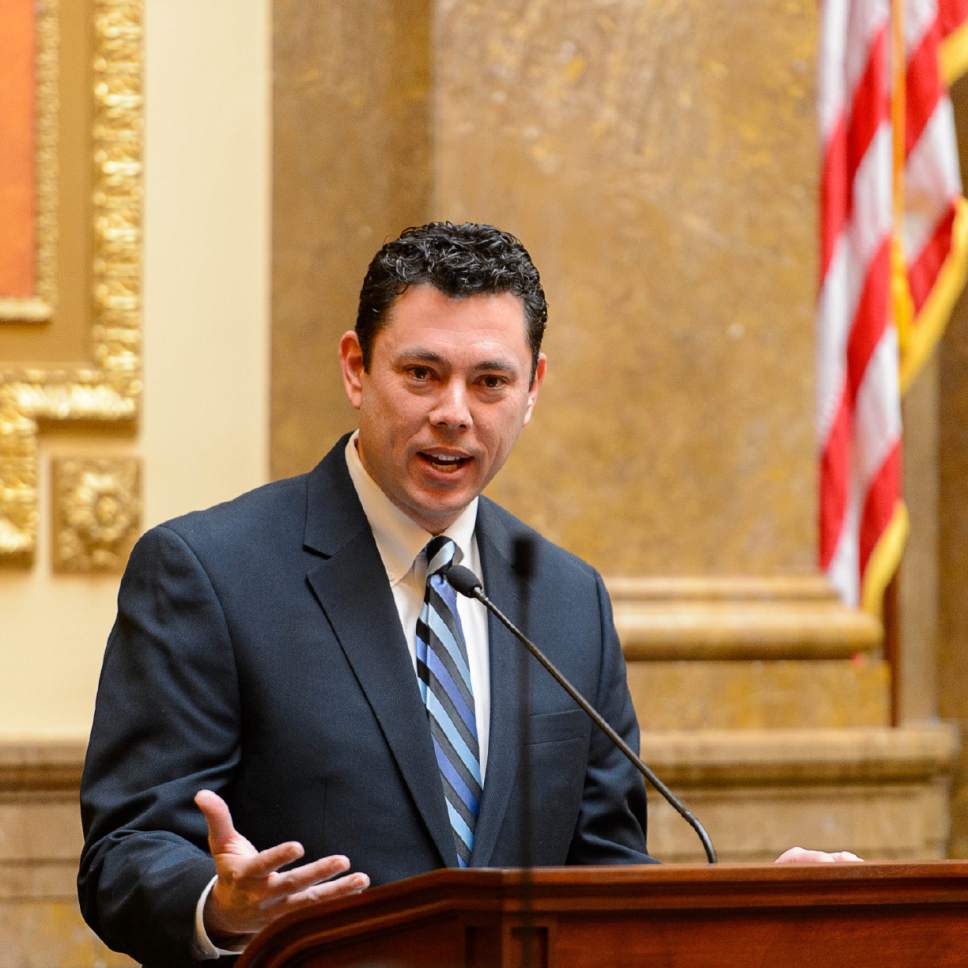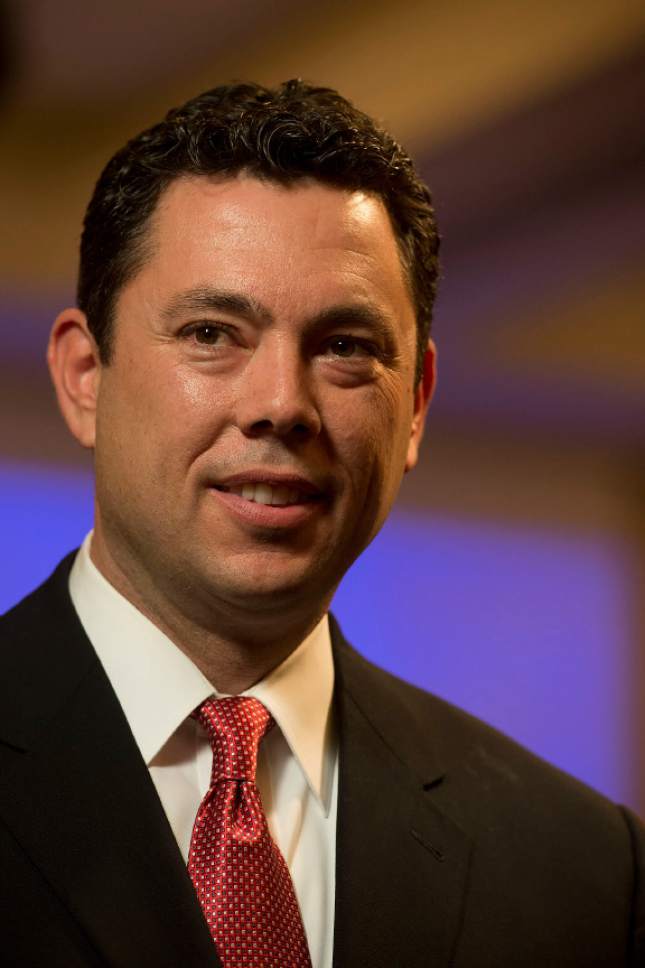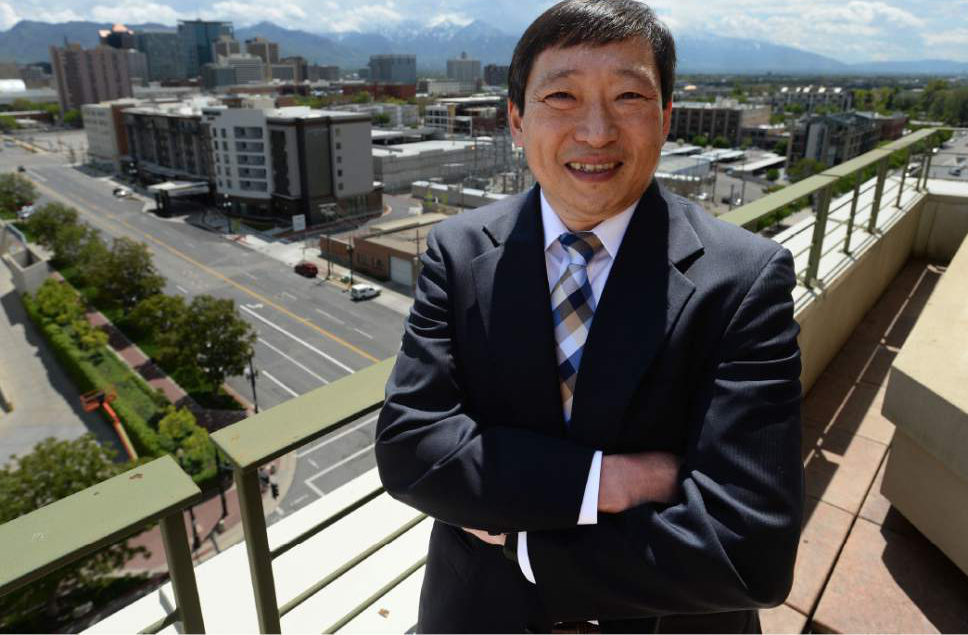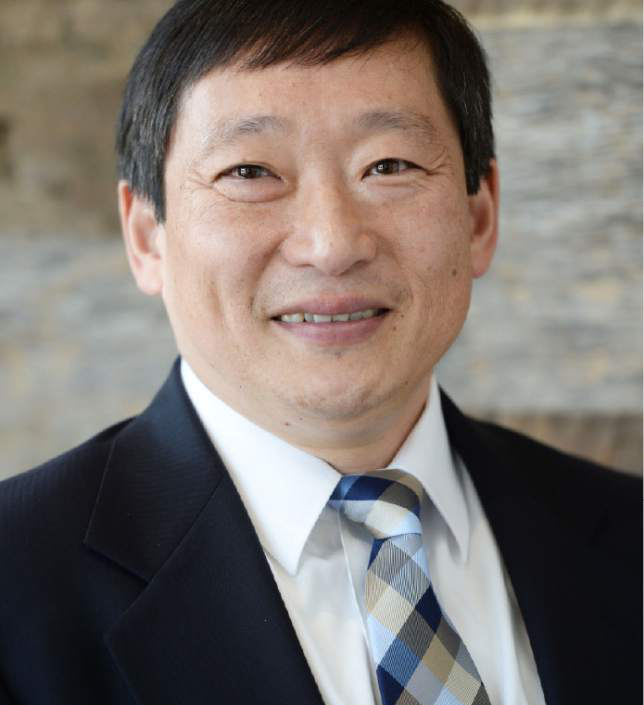This is an archived article that was published on sltrib.com in 2016, and information in the article may be outdated. It is provided only for personal research purposes and may not be reprinted.
Chia-Chi Teng may be a long shot to defeat four-term incumbent Rep. Jason Chaffetz in next month's GOP primary, but he has managed to get under the congressman's skin.
In an interview, Chaffetz called Teng a "political hack" who is spreading misleading information and said he is surrounded "by some goons that use old, tired tricks."
He charged that Teng's campaign is run by Greg and Jason Powers, who he says "have a history in Utah that is of nefarious activities," and "did a lot of the Shurtleff and Swallow stuff" that helped lead to criminal charges against former Attorneys General John Swallow and Mark Shurtleff.
Chaffetz's annoyance follows Teng's accusations that the Utah congressman may be improperly profiting from campaign donations, has become part of the nonfunctioning Washington, D.C., establishment, is raising taxes, and helping to spend the nation further into debt.
Each candidate points to the other's weaknesses, and their mutual disdain was easy to see at the Utah Republican Convention last month.
Teng, a former Microsoft software engineer who is now a professor at Brigham Young University, used his convention speech to hit Chaffetz on all his attack points — questioning his campaign donations, saying Washington has changed him, and charging that he is not a true conservative anymore because he is voting for too much spending and trying to raise taxes.
Chaffetz appeared ticked off as he walked onstage afterward, and launched a counterassault. He said Teng's "attacks on our personal family and the way we do business … cannot stand and it will not stand. It's not right in this process."
The two leave behind a tangled mass of conflicting claims and counterclaims.
—
Dirty tricks? • First, consider Chaffetz's assertion that Teng's campaign is run by the Powers brothers and that they are known for using dirty tricks.
As of April 11, Teng reported paying $113,000 for campaign consulting to G1 Consulting — which is owned by Greg Powers. Its corporate papers do not list Jason Powers as a partner or officer.
"Jason doesn't have any role in my company," Greg Powers says, disputing claims to the contrary.
That's important because Jason Powers, not Greg, is the one implicated in the Swallow scandal. House investigators said he funneled money from payday lenders in ways to avoid public disclosure, and used it to torpedo Swallow's GOP primary opponent (current Attorney General Sean Reyes).
Investigators also said Jason Powers diverted some of the payday-lender money to oppose Rep. Brad Daw, R-Orem, who had pushed for tighter regulation of the industry. The funds paid for mailers that labeled Daw a socialist and a supporter of President Barack Obama, and helped lead to his defeat in 2012.
G1 consulting also is now doing work for Gov. Gary Herbert's campaign, which sought assurances in contracts that Jason Powers would not be involved. Greg Powers says he believes that led some to assume Jason Powers is somehow working for him, but insisted he is not.
Teng praised Greg Powers. "I'm fascinated by the kind of data he can generate and the kind of knowledge he has."
Collin Pace, Teng's spokesman, added, "If you want to win, you hire Greg."
—
Shifting blame? • Teng and Powers assert that Chaffetz is bad-mouthing Powers to shift attention from their questions and allegations about his campaign donations.
Teng filed a complaint with the Federal Election Commission suggesting Chaffetz may be pocketing campaign money. Teng says $77,000 in credit card reimbursements to Chaffetz were not itemized and could have gone into his pocket for inappropriate reasons.
Two campaign vehicles were used for out-of-state and possibly personal trips without reimbursement, Teng says. And he questioned baby-sitting and hotel charges paid by the campaign.
"If Mr. Chaffetz has nothing to hide, then he should stop deflecting and just release his receipts, release his vehicle logs and release his campaign calendar," Powers says. "The simple explanation for why he won't is that he's made a political calculation that doing so would be even worse for his political career."
Chaffetz's attorney, Matthew T. Sanderson, wrote a letter to Teng saying his allegations are false and said it "reveals how eager you are to willfully disregard facts in pursuit of a political score."
"Nothing we've said isn't true," Teng says. "Everything that we've talked about is in public records."
—
Campaign funding • At the GOP convention, Chaffetz criticized Teng for spending "about $100,000 to get signatures" to qualify for the primary ballot as allowed by the new state law SB54 — instead of depending on the traditional Republican caucus-convention system. He charged that Teng "went into debt immediately when he started the campaign."
Teng's disclosure forms say he spent $56,200 on signature gathering. They show his campaign is fueled by $227,000 in personal loans from the candidate. Teng says he covered those expenses from cash without taking out any personal bank loans. If need be, he could self-finance his campaign all the way through a general election, he says.
When asked if he is a millionaire, Teng simply laughs and says, "I did OK" when he worked at Microsoft. He retired from the software giant and teaches at BYU, he says, only "because I want to give back," which is also why he says he is running.
Teng takes a swipe at Chaffetz's campaign funding. "Last year, Mr. Chaffetz received 70 percent of his donations from out of state. It's hard to justify that he's representing Utah when he's funded by people outside of Utah." Chaffetz's forms show 83 percent of his donations for this two-year cycle came from outside Utah.
—
Misleading ads? • Chaffetz says some of Teng's ads are misleading — including one lashing him for voting for a $1 trillion omnibus spending bill to keep the government running in 2014.
That radio ad says, "Ted Cruz and Mike Lee didn't vote for it, neither did Marco Rubio, but Chaffetz did, joining the D.C. establishment, adding to the national debt, hurting the economy and killing jobs."
The House passed that bill on a 359-67 vote. All members of the Utah delegation, except Lee, voted for it.
"Nobody likes voting for an omnibus," Chaffetz says. "It's one of the worst ways to govern. But you are elected to make tough decisions. Partly I voted for that because it increases spending on the military, which has been cut by more than $100 billion in annual spending."
Teng also has a radio ad taking Chaffetz to task for introducing a bill to help collect sales tax on Internet purchases. While such tax is now technically already owed to states, it goes uncollected unless taxpayers voluntarily report it on state income tax returns.
But the ad says the bill would "increase how much the average Utahn pays in taxes," and make them "subject to audits by other states," which it asserts "is taxation without representation."
—
Plans • Despite Chaffetz's obvious irritation with Teng's tactics, he says his campaign may choose mostly to ignore Teng and focus on Chaffetz's record.
"I need to channel my inner place-kicker [a position he played for the BYU football team] and stay focused on the job rather than allow them to try to create an illusion of something other than what it really is," Chaffetz says.
"I think by and large most people in our district know who I am and won't be swayed by some political hack who decides to run some misleading information."
Teng plans to focus on Chaffetz's record, too, saying he will continue to ask, "Are we going to vote somebody back who is already part of the D.C. establishment for two more years? Or are we willing to make some real change, and send someone who cannot be bought, who will work for the people?"









